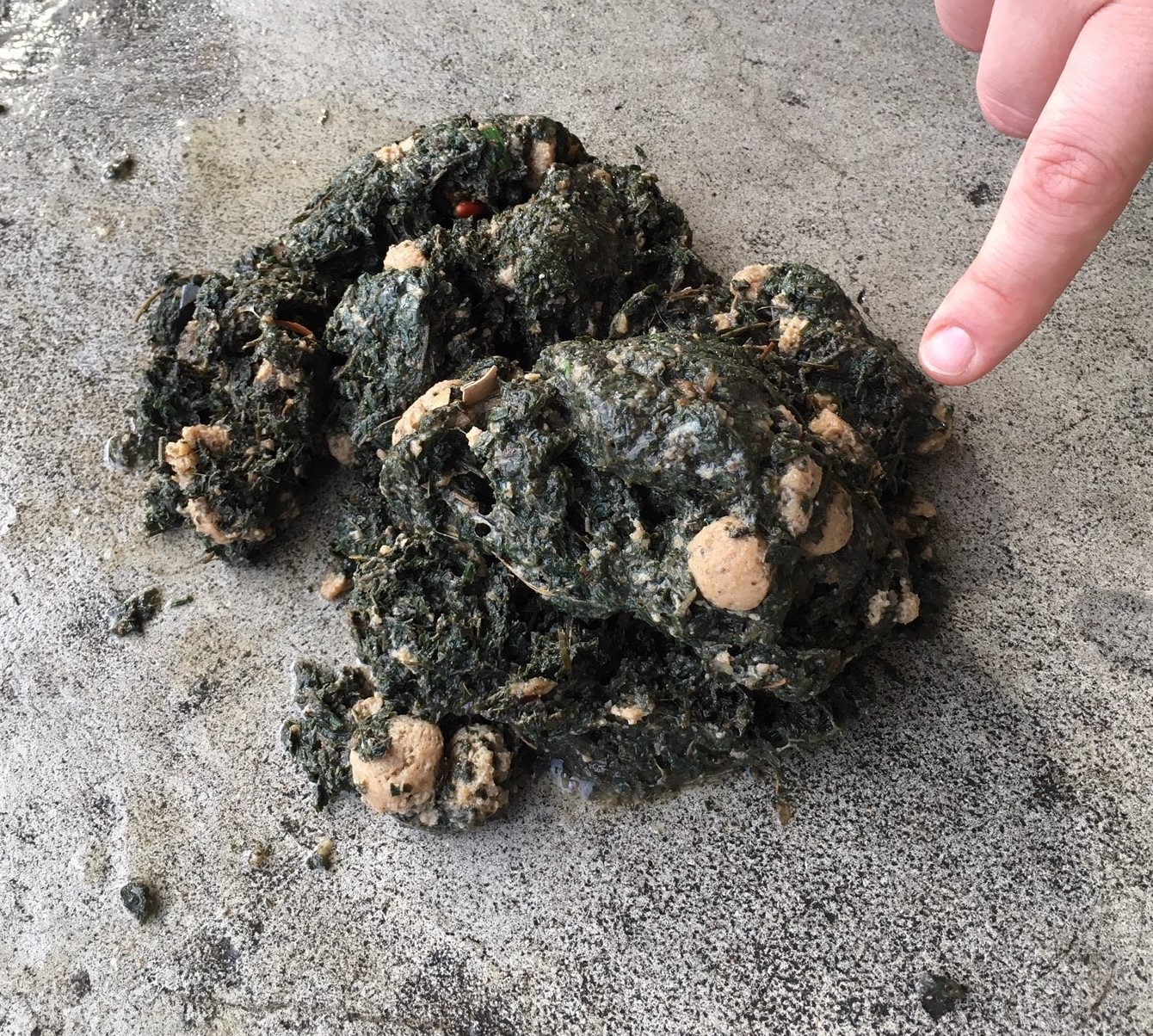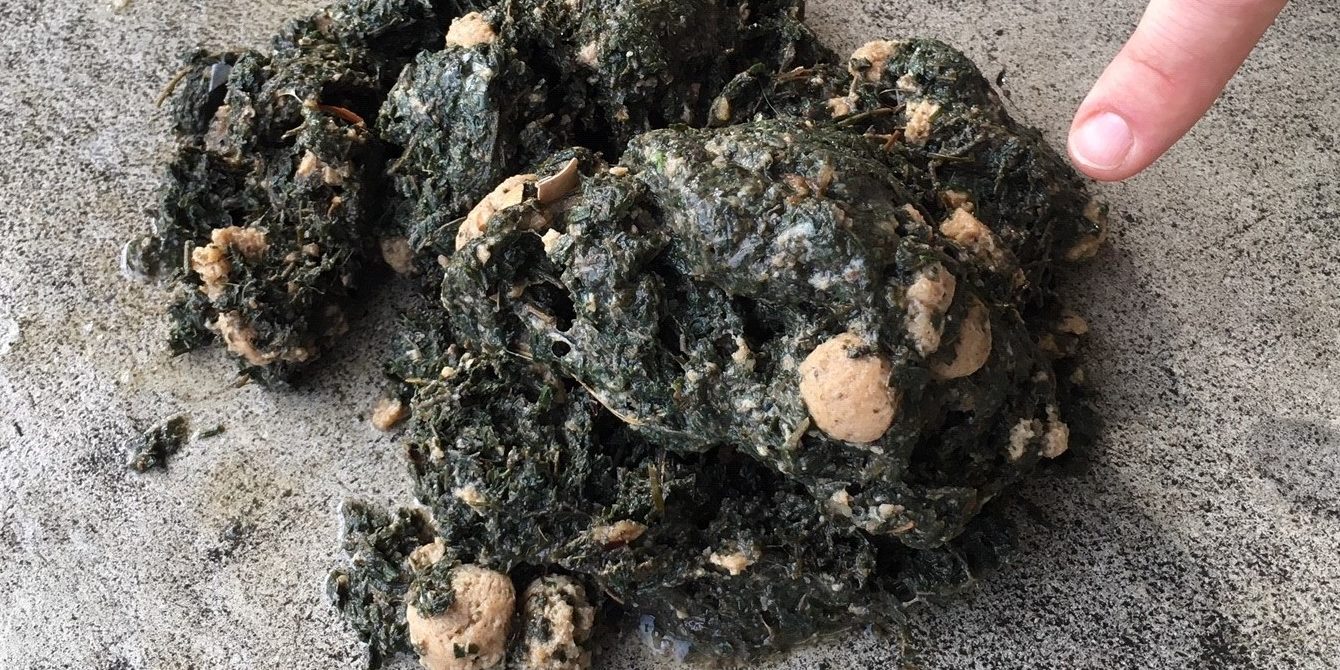
Unfortunately, the answer is yes. More and more frequently we are presented with dogs who are acting strangely and who are known to, or suspected of having ingested, someone’s stash of marijuana or products containing cannabis derivatives.
Dogs have more cannabinoid receptors in their brain than humans do which means they are more susceptible to THC toxicity.
While dogs can be profoundly affected, fortunately the minimum lethal dose of THC in dogs is still quite high, but deaths can occur with the more potent plant material around today, the large amounts of material some dogs will eat (see photo), and the availability of medicinal grade cannabis products.
A Veterinary conference I attended last year in Canada devoted half a day to this subject as well as possible future beneficial effects of some Cannabinoid substances.
In dogs the clinical symptoms typically begin 30-90 minutes after ingestion and because THC is stored in the boy’s fat deposits, the effects can last for several days.
Symptoms include incoordination, listlessness, dilated pupils, a very slow heart rate, excessive drooling, urinary incontinence, a jumpy “startle reaction”, and in severe cases tremors, convulsions and coma.
Technically urine testing, as used in humans, can confirm diagnosis, but in suspect cases we normally just induce vomiting (see photo of results of a recent case in Hastings from a local farm for the sheer amount a dog can eat sometimes!), control of anxiety and fluid support.
Why would we alert you to this type of poisoning? Usually the neighbour is blamed for the Cannabis source!, but from our point of view the important things is if questioned it is helpful to have confirmed if you suspect Cannabis could be possibly available to the animal, so we can target our treatment accurately. Our sole focus is on helping the patient presented to us and the source of the poisoning is not our concern.





